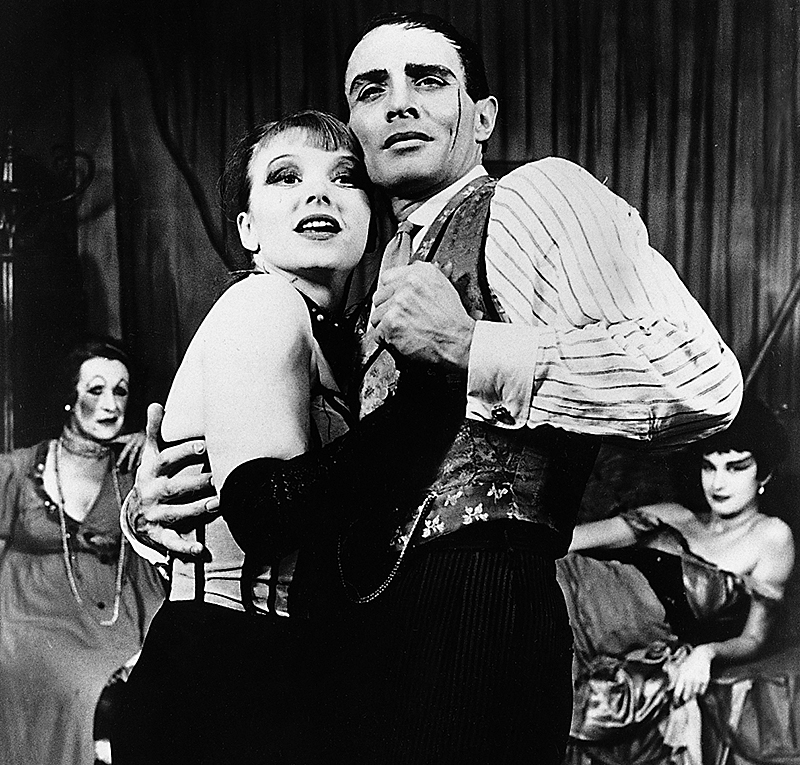Threepenny Opera, The, is an opera in a prologue and three acts by the German composer Kurt Weill (see Weill, Kurt ). The title is a translation of its German name Die Dreigroschenoper. Lyrics for the songs were written by the German dramatist Bertolt Brecht in collaboration with Elisabeth Hauptmann. Brecht based the words on a German translation of The Beggar’s Opera (1728), a musical play by the English dramatist John Gay about criminals and corrupt public officials in London. Brecht also based some of his lyrics for The Threepenny Opera on poems by Rudyard Kipling of England and Francois Villon of France. The Threepenny Opera was first performed in Berlin on Aug. 31, 1928.

The Threepenny Opera is set in London about 1900. The prologue depicts a fair in the Soho district frequented by beggars, prostitutes, and thieves. J. J. Peachum earns his living by hiring out costumes to beggars that encourage passers-by to take pity on them. Peachum is outraged to learn that his daughter Polly has married the robber Macheath, known as Mack the Knife. Peachum’s wife bribes the police to ensure Mack’s arrest and imprisonment. Mack has earlier pretended to marry Lucy Brown, daughter of the police commissioner, and this leads to an angry exchange of words when both girls visit him. With the help of Lucy, Mack escapes but is later recaptured and sentenced to be hanged. After another unsuccessful attempt to escape, he is about to go to the gallows, when he receives a reprieve from the queen and is made a peer.
The music of The Beggar’s Opera was based on popular English tunes of the day. Weill’s music for The Threepenny Opera does not use actual popular songs but sets out to mimic the style of the songs that were being heard in Germany, especially in Berlin cabarets (nightclubs), during the 1920’s. This approach produces music that is hard-edged and brittle and perfectly mirrors the cynical mood of Berlin in the late 1920’s.
An adaptation of The Threepenny Opera by Marc Blitzstein became a hit off-Broadway in New York City. The adaptation retained Weill’s music but used Blitzstein’s English lyrics and dialogue. The show opened in 1954, closed briefly, and reopened in 1955. It eventually ran 2,706 performances. The song “Mack the Knife” became a hit popular song in the United States. Another notable song in the American production was “Pirate Jenny.”
